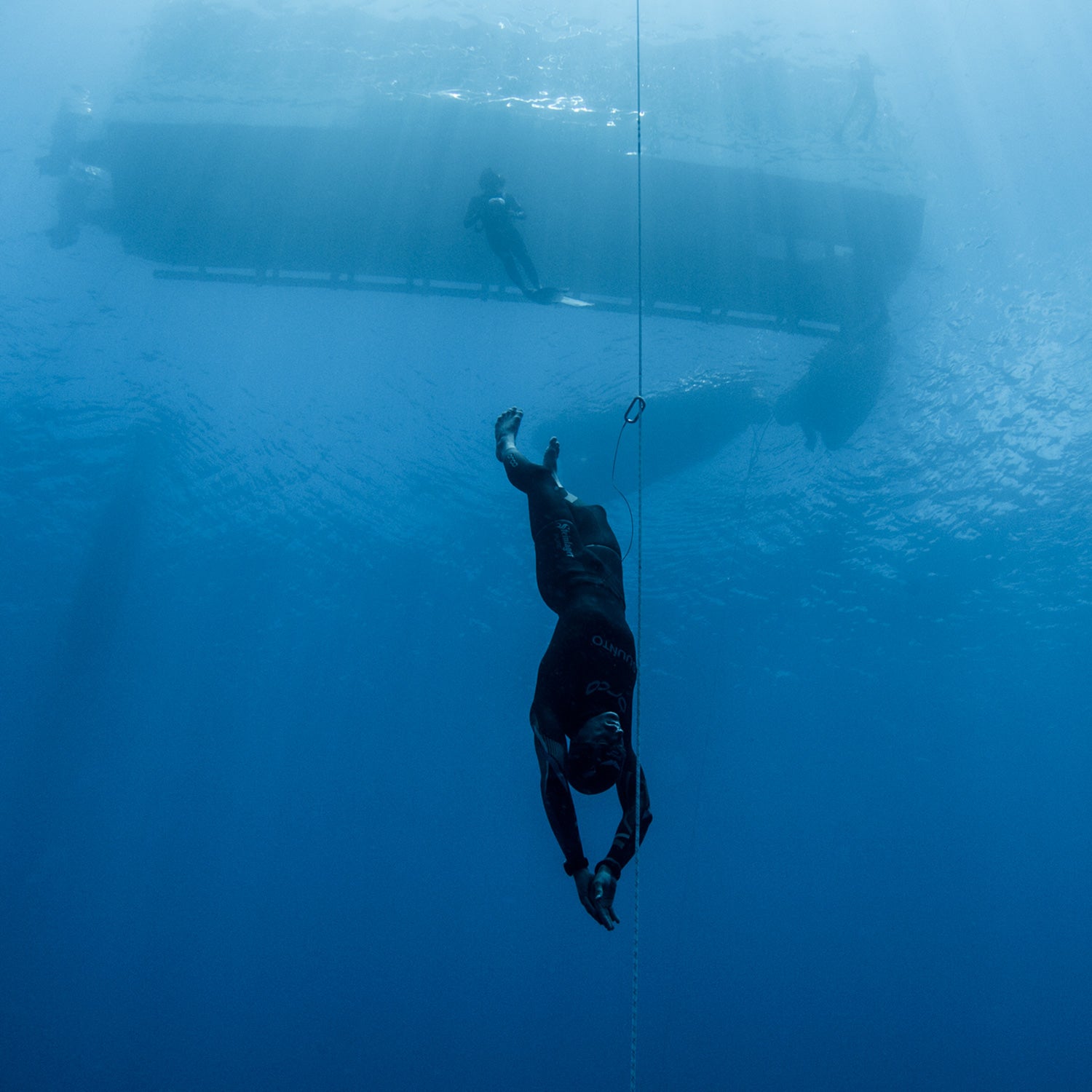On April 30, 2016, at Grotto Bay in the Bahamas, freediver╠ř took a few gaping breaths and descended into the Atlantic Ocean wearing nothing but a wetsuit and a nose plug. Four minutes and thirty-four seconds later, he reappeared, below the surface. That set a new ÔÇťfree immersionÔÇŁ world record, besting his 2011 mark of 121 meters. (In the freediving discipline of free immersion, a diver pulls on a weighted rope, without the assistance of fins, to descend and ascend.)╠ř
But╠řjust two days later, Trubridge, feeling recovered but not at all content, dove again. This time, he plunged to 124 meters, or just shy of 407 feet. Many agree it is a record that ought to stand for quite some timeÔÇöthat is, until Trubridge decides otherwise. I recently caught up with the New Zealander from his current home in the Bahamas, where he runs a diving school called , to learn how he prepares his body and mind for a pursuit where the most minor error could have lethal consequences.╠ř
Á■▓╣│Ž░ý▓Á░¨┤ă│▄▓ď╗ň╠ř
I was brought up on a boat, home schooled and all, so I have always been at peace in the water. But it wasnÔÇÖt until I was 22╠řyears╠řold, on holiday in the Caribbean, that I tried freediving. I completely fell in love. I spent about three months in the Caribbean and dove every single day.╠ř
Training
My approach is similar to other endurance sports: I have a base, build, peak, and taper phase. Most of my training takes place in a 25-meter pool. I swim horizontally underwater, trying to mimic the same motions of a vertical dive. Physiologically, it╠řis very similar. IÔÇÖll do shorter distances (25╠řto 50 meters) with short recoveries. I can get in a lot of quality work with intervals like this.╠ř
But as I approach big dives, I get more specific and start doing longer reps in the pool and vertical dives in the ocean. I also do dry-land work: resistance training that mimics the kick and arm stroke, and yoga and breathing exercises to increase flexibility in my rib-cage. This helps when it comes to dealing with the pressure that builds during a deep dive. All told, I probably train four to six hours a day.╠ř
Favorite Workout
I love ÔÇťtraining tables,ÔÇŁ or sets of vertical dives. For example, eight╠řdives down to 30 meters with decreasing recovery timeÔÇöfrom a few minutes down to 35 seconds.╠ř
Diet/Nutrition
Working with minimal oxygen creates acidity and carbonic acid in the bodyÔÇöprime conditions for muscle breakdown. I try to contrast this with a highly alkalizing diet. I eat lots of greens, fruits, chia seeds, and hemp protein. I also focus on building red blood cells, which store and transport oxygen. Spirulina, Vitamin B-12, Folic acid, and iron-heavy foods are key here.╠ř
╠ř
Managing Anxiety
I never feel fearÔÇöthere are numerous safety precautions in the sport, from spotters to sonar trackingÔÇöbut I do feel nervous. Whereas in some sports excitement is a positive, in freediving, thatÔÇÖs not the case: adrenaline accelerates your heart rate, which is the last thing I want.╠ř
The most important thing is to stay relaxed; I just focus on what I am doing in the moment. Experience is key here. The more you are in a pre-dive scenario, the more comfortable you become.╠ř
“Whereas in some sports excitement is a positive, in freediving, thatÔÇÖs not the case: Adrenaline accelerates your heart rate, which is the last thing I want.”
On the Way Down
During the first part of a dive, IÔÇÖm still buoyant, so I focus on technique, propelling myself down. When I get to the free fall part, I focus on shutting down my body and mind. [As a diver descends, pressure builds and eventually he or she becomes ÔÇťheavierÔÇŁ than the water and begins to sink.] There is no sound and hardly any light down thereÔÇöI enter a deep flow state.╠ř
Time to Enjoy the Bottom?╠ř
No way. ItÔÇÖs easy to get downÔÇömost of the work is getting up. I turn around as efficiently as possible.╠ř
Resurfacing╠ř
In order for a dive to count, I need to perform the surface protocol: goggles off, give the OK sign, and say, ÔÇťIÔÇÖm OK.ÔÇŁ At this point, IÔÇÖm still far from 100 percent, so I just try to read the body language of the judges to see if I did it correctly. Fifteen seconds later, the judges flash a card scoring the dive. Then I know I did it. Not long after that, I regain my faculties.╠ř
On Pushing
IÔÇÖve always been fascinated with exploring and discovering new things. Freediving is a sport where we are learning new things about the human body and our potential to be aquatic. To be on the forefront of that is really exhilarating.╠ř
Getting Started
For those wanting to get into the sport, IÔÇÖd recommend first reading , then take a course or get involved with a club. Learn from people with more experience. Never do any kind of training in the water by yourself, even if itÔÇÖs just holding your breath in the bath or in the pool.


